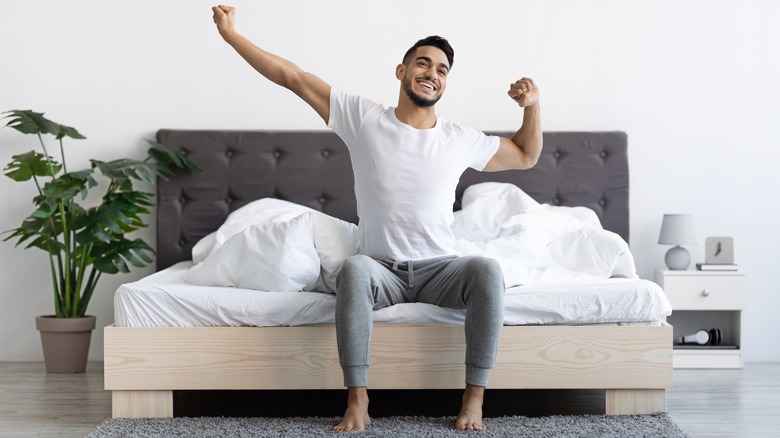While many people try to get at least 8 hours of sleep a night, there are some people who don’t need a full night’s rest due to short sleeper syndrome. People with this sleep condition sleep less than 6 hours each night, according to Healthline, and still feel rested the next day. Despite not getting the recommended 7-9 hours of sleep, people with short sleeper syndrome often function normally the next day without the need for caffeine or naps.
However, those with the condition don’t choose to sleep so little — the lack of extra sleep occurs naturally in their body. That being said, even if you get about 6 hours of sleep a night, that doesn’t necessarily mean you have short sleeper syndrome. The American Academy of Sleep Medicine (AASM) explains short sleeping can begin in young children and continue into adulthood. Short sleep is consistent, even on days you have the chance to sleep in, like weekends or days off.
Causes of short sleeper syndrome

Research is still being conducted, but it’s believed a gene mutation may be one cause of short sleeper syndrome (via AASM). Genetic mutation is a common theme among short sleepers, and it was first discovered more than 10 years ago by researchers from the University of California San Francisco (UCSF). Scientists studied people with the short sleeper gene, or DEC2, versus those without short sleeper syndrome. They found an average sleep time of 6 hours for short sleepers (per the UCSF).
Those who didn’t have short sleeper syndrome averaged around 8 hours of sleep per day. Despite this scientific breakthrough, the gene mutation was only believed to be the cause of short sleeping for some people, and not everyone in the study. Furthermore, multiple sleeper genes have been found since the first gene mutation discovery.
According to the American Sleep Association, many people mix up short sleeper syndrome and insomnia, but the 2 are very different. People with insomnia typically can’t fall asleep or stay asleep, and their sleep quality is lousy. Poor sleep can lead to serious health risks, such as cancer, dementia, cardiovascular disease, and a weakened immune system (via the UCSF).